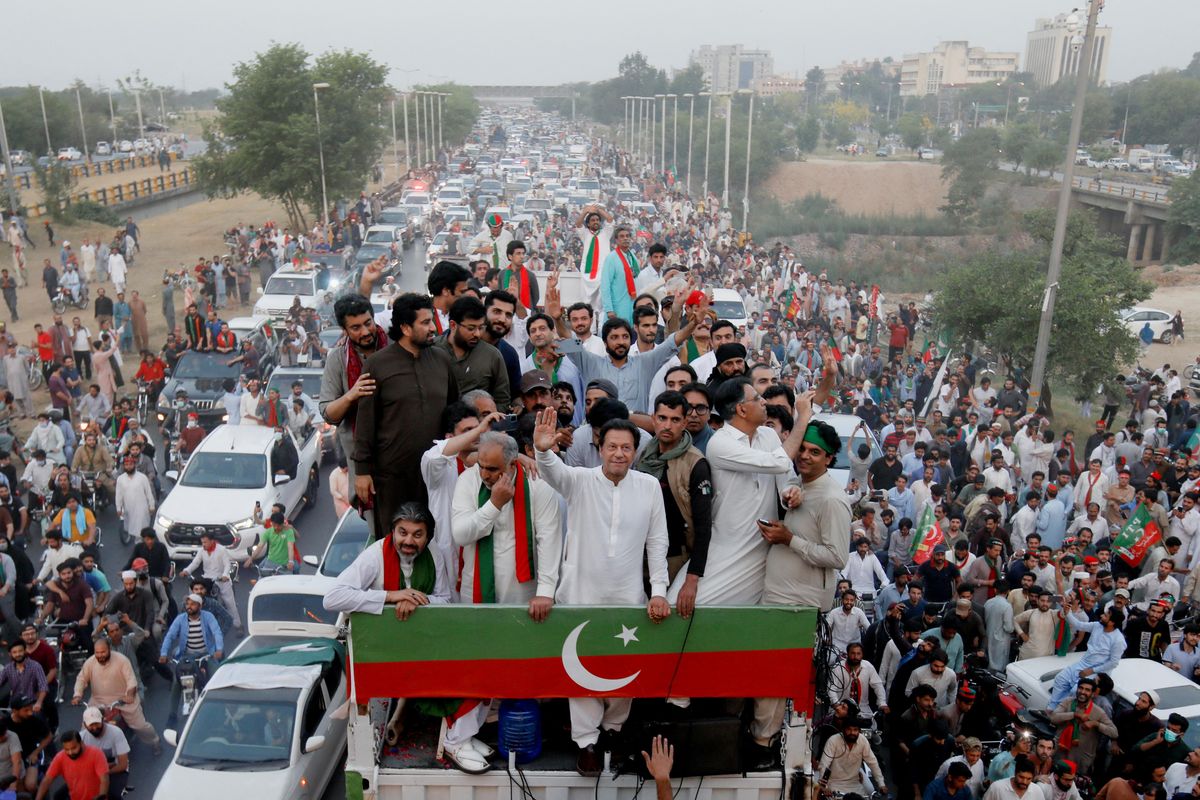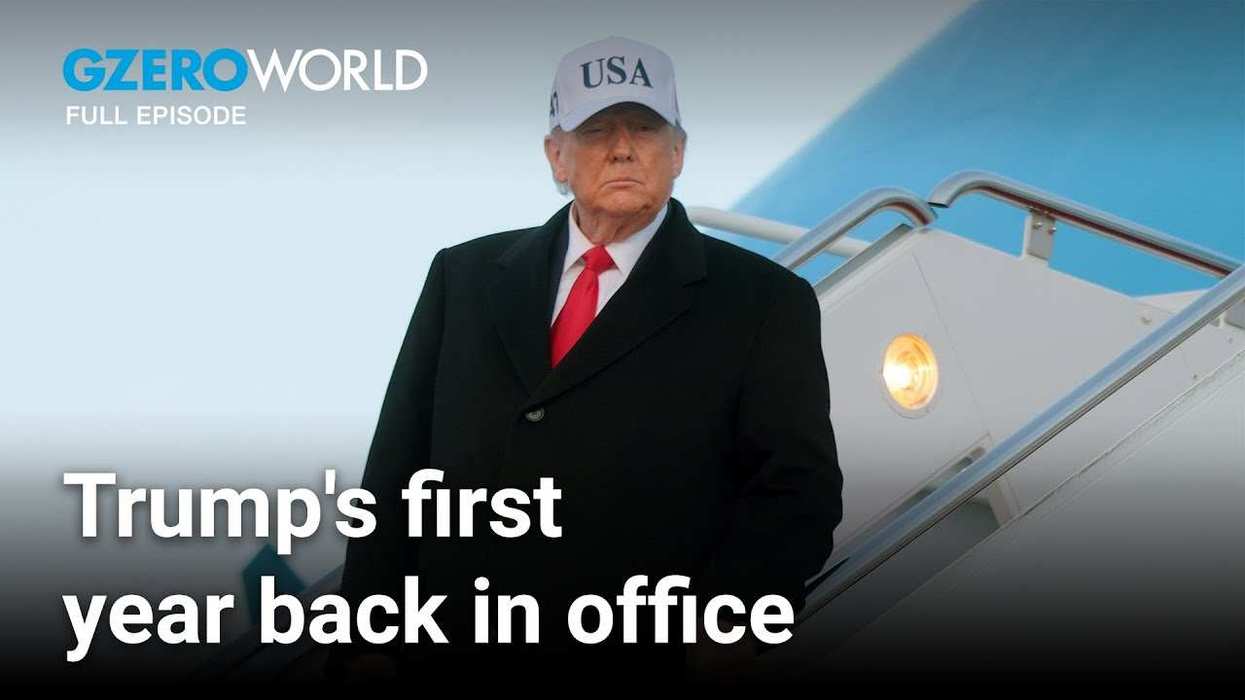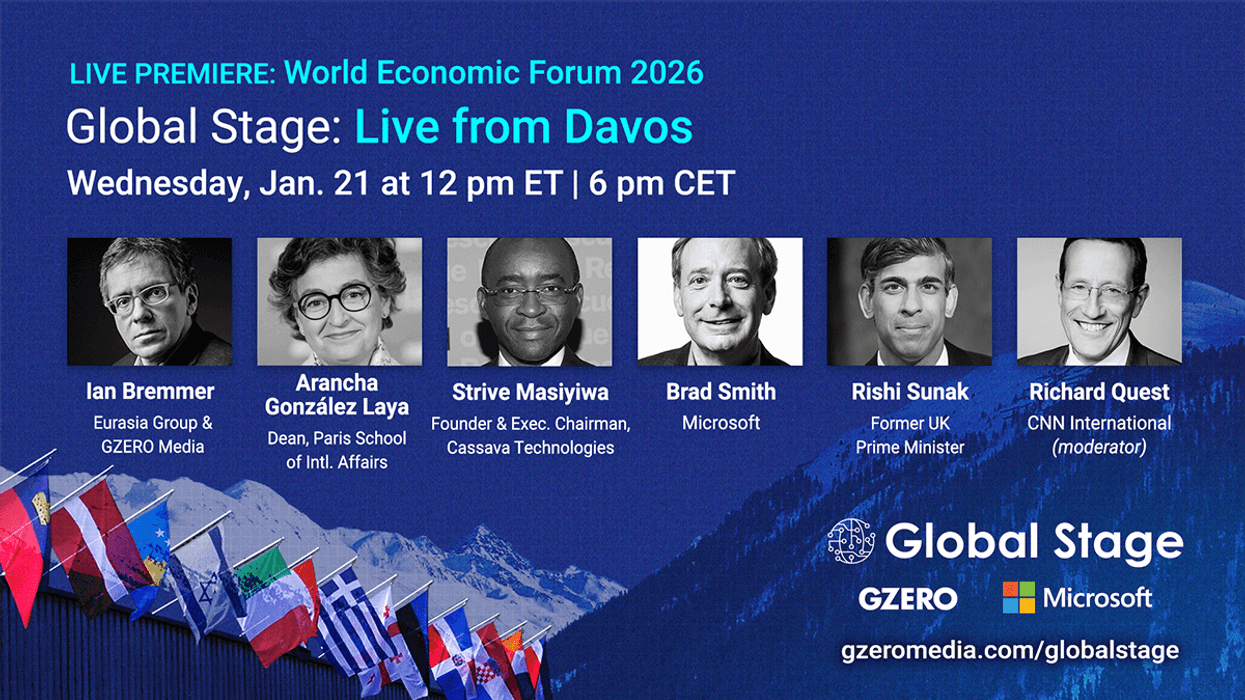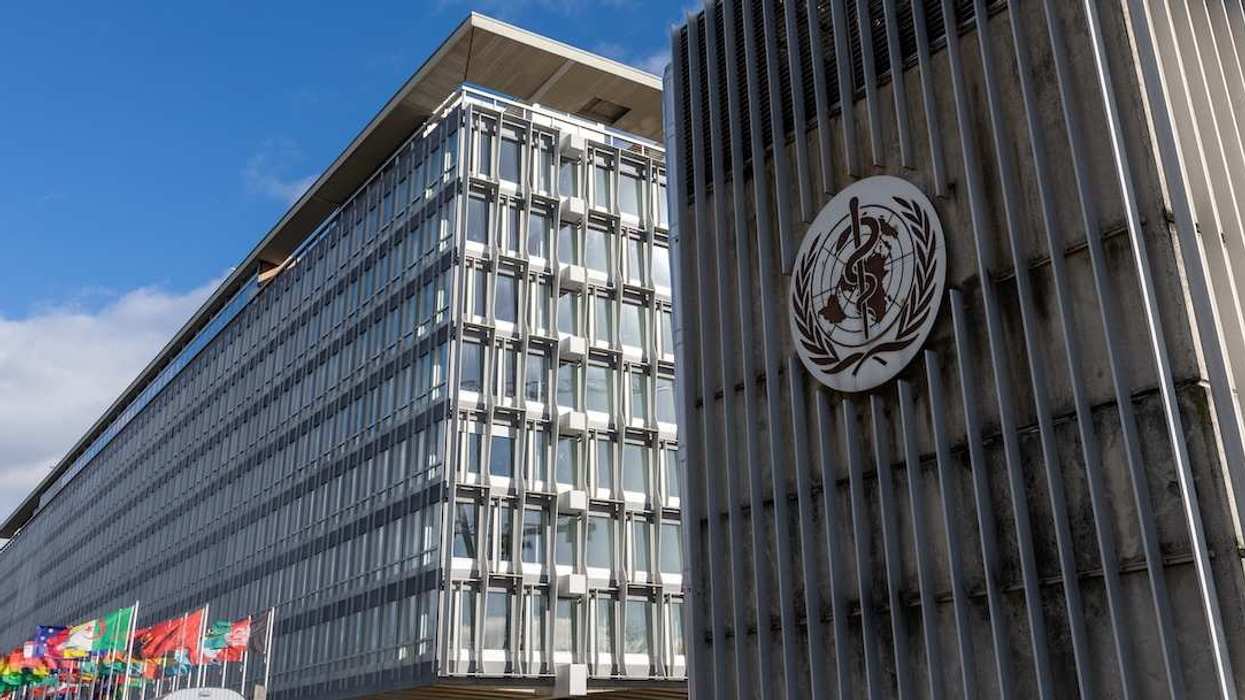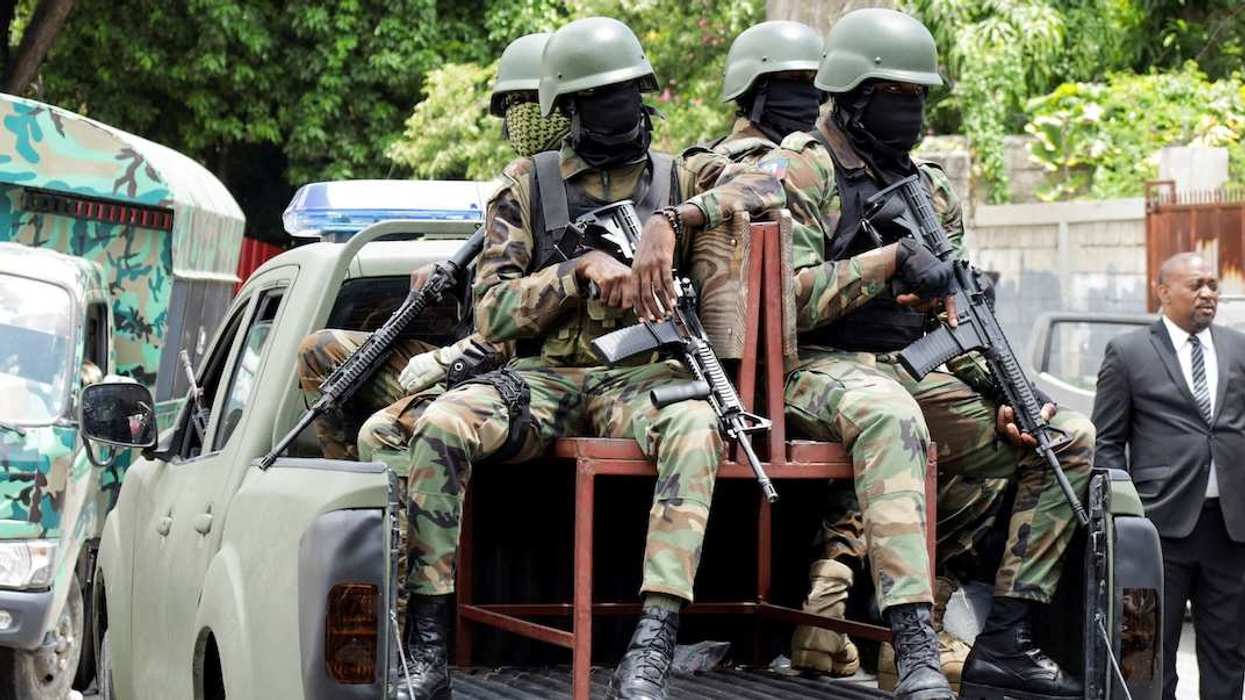Imran Khan issues dangerous ultimatum
Pakistan’s former Prime Minister Imran Khan – booted from the top job last month by a parliamentary no-confidence vote – has called on the country’s nascent government to hold new elections within six days or risk full-blown social upheaval. For weeks, Khan has been whipping supporters of his Pakistan Tehreek-e-Insaf Party into a frenzy, saying his ouster was perniciously orchestrated by Washington in conjunction with the newly minted PM Shehbaz Sharif. (Khan, of course, fails to acknowledge that his removal was in large part a reflection of dissatisfaction with the country’s imploding economy and dwindling foreign reserves.) Things got really bad this week when Khan led his supporters in a march from his home turf of Khyber Pakhtunkhwa province toward Islamabad. As throngs of angry PTI supporters tried to reach the capital, violent clashes with police ensued in multiple cities. The Supreme Court ordered police to remove barriers on highways that were preventing pro-Khan protesters from reaching Islamabad but said that protests in the capital needed to be confined to a specific area. That didn’t happen, and police responded to the violence and disorder with tear gas. This turmoil comes as Sharif is trying to convince the International Monetary Fund that Pakistan has gotten its act together to get funding back on track. Khan isn’t backing down, and the next week could be deadly.
The national politics of a global slowdown
“As we look at the global GDP... it's hard right now to see how we avoid a recession,” said World Bank President David Malpass on Wednesday. The sources of this potential economic slowdown have everything to do with politics. Vladimir Putin’s decision to order a Russian invasion of Ukraine has had a major impact on world prices for food, fertilizer, and fuel. (Russia and Ukraine are major grain producers, Russia and ally Belarus are leading fertilizer exporters, and Russia is a leading producer of oil and gas.) There’s also China’s political decision to fight COVID with lockdown policies that are sharply slowing growth in the world’s second-largest economy. The result of all this may be an economic slowdown in multiple countries that impacts their politics. Recessions are bad news for incumbents of all stripes, and over the next 18 months, there will be national and/or important state elections in Brazil, the United States, the Czech Republic, Nigeria, Turkey, Italy, Denmark, Malaysia, Pakistan, India, and Germany. We’ll be watching all these countries to see how their political leaders weather potential economic storms.
Bolsonaro to meet Biden, finally
As the Biden administration scrambles to avoid multiple no-shows at next month's Summit of the Americas in Los Angeles, Brazil's President Jair Bolsonaro has reportedly changed his mind and decided to attend ... after President Joe Biden agreed to a bilateral meeting. It'll be the first between him and Bolsonaro, a big fan of Biden's predecessor, Donald Trump, and one of the last world leaders to recognize Biden's 2020 victory. US-Brazil ties are now frosty at best, but the White House is eager to make friends in Latin America as China's influence there grows. Interestingly, Bolsonaro's RSVP coincided with revelations that a top emissary of his presidential election rival and frontrunner Luiz Inácio Lula da Silva dropped by Washington, DC, last month to meet with State Department officials. It's unclear what was discussed, but the Americans are wary of Lula's public support for socialist autocracies in Cuba, Nicaragua, and Venezuela. Lula, for his part, has claimed that the US worked with Brazilian authorities to throw him in jail. Clearly, there's not much love lost between Biden and either Bolsonaro or Lula, so the US will likely avoid picking sides when the two Brazilians face off in October.This comes to you from the Signal newsletter team of GZERO Media. Subscribe for your free daily Signal today.
